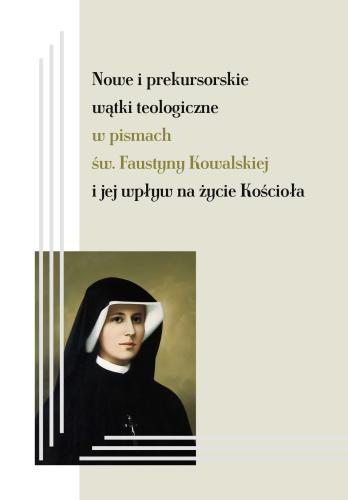Doing mercy in deed, word, prayer – an attempt to signal the concept of a new tripod in the theology of education in the context of the “Diary” of St Faustina Kowalska
Synopsis
Mercy as a key attribute of God has become a focal point of particular teaching in the contemporary Church following the Second Vatican Council, especially through the efforts of St John Paul II, to whom we owe the canonization of St Faustina Kowalska, known as the Secretary of Divine mercy. Sister Faustina was a visionary, mystic, and advocate of Divine mercy. Her “Diary”, authored by her, is currently the most popular and frequently translated book by a Polish author, containing a personal call to boundless trust in God directed to every individual. The forms of devotion to Divine mercy include the Chaplet of Divine mercy, Divine Mercy Sunday, the hour of mercy, and the image of Divine Mercy. In the field of educational theology, her Diary also presents a distinctive “pedagogical tripod,” modeled after St John Bosco, encapsulated in the words: to practice mercy through deeds, words, and prayer. Sister Faustina’s model of education, rooted in the pedagogy of Jesus Christ, encompasses her life – fidelity to her vocation, work, prayer, and suffering – her message in the „Diary” (the pedagogy of mercy, personalist, imitation of Christ), and her ever-relevant spirituality, which promotes devotion to Divine mercy.



